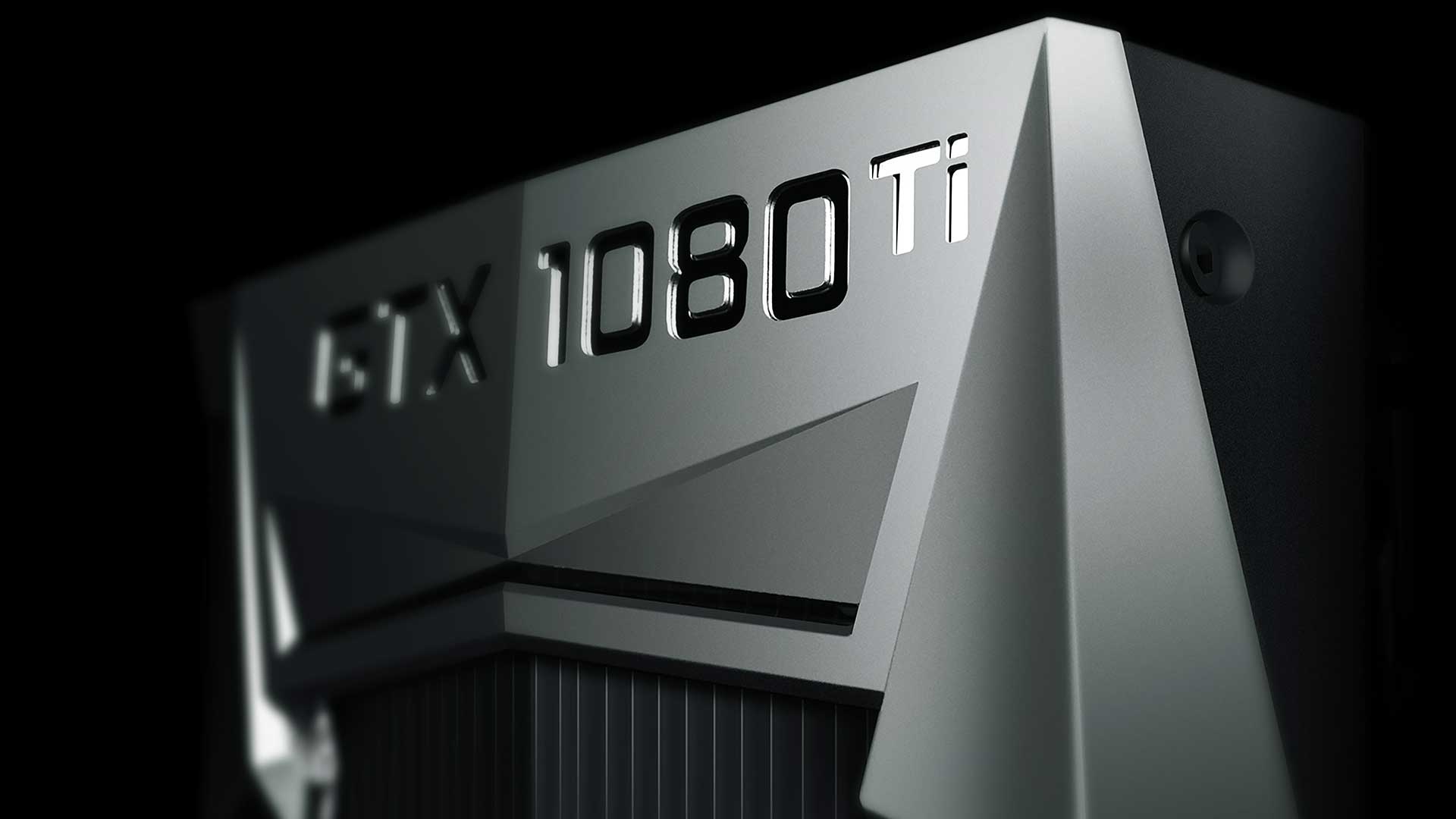Nvidia confirms end of Game Ready driver support for Maxwell and Pascal GPUs — affected products will get optimized drivers through October 2025
End of the line for a wide range of iconic graphics cards

Nvidia's Maxwell and Pascal families of GPUs set new bars for performance and power efficiency when they first launched, but the world of real-time graphics has gone through massive shifts since their launches about 10 years ago. Even with those industry shifts, GeForce 10-series cards have soldiered on with solid enough performance in many games, especially the GeForce GTX 1080 Ti and its 11GB of VRAM.
Despite Pascal's impressive longevity, Nvidia is ready to move on. The company confirmed this morning that it's ending new Game Ready driver development and support for these products. In a press release, the company says that "after a final Game Ready Driver release in October 2025, GeForce GPUs based on Maxwell, Pascal, and Volta architectures will transition to receiving quarterly security updates for the next three years (through October 2028)."
This announcement confirms plenty of smoke signals warning of this change, and it will affect a substantial number of gamers. GTX 9-series graphics cards are rare sights on the Steam Hardware Survey these days (possibly due to their limited VRAM pools), but GTX 10-series products still make up a notable slice of the PC gaming pie. The only Volta desktop card was the Titan V, and we expect that only a tiny handful of those are still in use.
This change may sound ominous for gamers, but it's important to note that it's not the end of the world. It's not as if Maxwell and Pascal GPUs will suddenly stop running games entirely in October. Even if Nvidia isn't further optimizing performance for these GPUs, they should at least continue to run titles that don't require features specific to Turing and later GPU architectures, albeit with less assurance of performance or stability.
Turing, of course, was the first Nvidia GPU architecture to introduce ray-tracing acceleration. Even today, RT remains a mostly optional part of the PC gaming experience. Doom: The Dark Ages and Indiana Jones: The Great Circle are (so far, rare) examples of games that mandate graphics cards with ray-tracing acceleration to run. As practically every new console and GPU includes support for RT acceleration, however, more AAA titles might impose this requirement going forward.
If ray tracing isn't essential for the enjoyment of most modern games, it's hard to imagine life without DLSS upscaling and its boosts to performance and image quality alike. Turing introduced the Tensor Cores that have gone on to power DLSS and a range of other Nvidia AI models, such as Ray Reconstruction and Blackwell's Multi-Frame Generation.
Without that matrix math hardware, Pascal and earlier GPUs can't effectively run DLSS, while even seven-year-old Turing cards can enjoy the world-class image quality of the DLSS 4 upscaler and its transformer architecture.
Get Tom's Hardware's best news and in-depth reviews, straight to your inbox.
Pascal gamers can at least run AI-powered upscaling with Intel's XeSS DP4a model in titles that support it, but that's likely cold comfort given the range of other performance pressures on those aging products. If you're trying to eke out every last bit of life from a GTX 10-series card in modern games, XeSS at least offers more flexibility in tuning your experience.
In other news of impending end-of-life measures, Nvidia says it plans to provide Game Ready drivers for supported cards on Windows 10 through October 2026, or a year after the operating system's end-of-support date. Unlike the relatively graceful end of life period that's likely with Maxwell and Pascal GPUs, Microsoft is putting a hard stop to feature and security updates for Windows 10 this October 14. Win10 still has about 50% of the desktop operating system market, so this change will affect a huge number of users.
If you can't or won't update your gaming rig to Windows 11, it might be some comfort that Nvidia will at least have your back for a year while you consider your path forward.
Follow Tom's Hardware on Google News to get our up-to-date news, analysis, and reviews in your feeds. Make sure to click the Follow button.

As the Senior Analyst, Graphics at Tom's Hardware, Jeff Kampman covers everything to do with GPUs, gaming performance, and more. From integrated graphics processors to discrete graphics cards to the hyperscale installations powering our AI future, if it's got a GPU in it, Jeff is on it.
-
rluker5 The old cards have trouble keeping up with the latest games anyway, so security updates are enough to play the slightly older games that look nearly as good.Reply -
Dementoss I have an Evga 1070 ti and play at 1440p. I don't play a lot and, none of my games are AAA FPS games, or very recent so, it still does a decent job of RPGs and MMORPGs, until I buy an RX 9070 XT later this year. Oblivion Remastered and Elder Scrolls 6 will likely bring the oldie to it's knees...Reply -
abufrejoval Just swapped the GTX 1070 in my 22-core Broadwell Xeon against a GTX 1080ti that got returned to the pool yesterday: booth are doing a quite reasonable job running games at 4k, although not at 'ultra', running Windows 11 IoT with support until 2034, as well as all kinds of Linux.Reply
Because it looks like Windows 12 won't be supporting either.
I see that as the real issue: M$ may decide to change something significant in the driver architecture to close the performance gap to Linux/SteamOS and those changes won't be backported to these hardware generations, while Windows 10 drivers work with its 11 refresh.
The main appeal of the Broadwell and the GTX 1080ti is their broad hardware and software support, so many slots and ports to plug things into for experimentation and 128GB of RAM to virtualize everything while the energy consumption is actually quite modest and pretty much on par with a Ryzen 7 5800X that offers near identical multi-core performance.
As bad as this is, AMD is much worse: they have deprecated support for hardware that was still being sold as new at the time (e.g. Richland APUs). And they are the only x86 PC vendor I know that skimps on Windows Server signatures on their drivers: Intel has done that, too, but only on some SmartNICs not CPUs, GPUs, or mainboards. -
ihatewindowss Reply
I went from the same at 1440p to a 9070 XT and the 1070 ti was a great card but at 1440p the 9070 delivers. The 9070 is still a little behind in rocm vs CUDA but it's very good for graphics. I don't ever want to own a nvidia card again. The display out from AMD on linux is pure frames.Dementoss said:I have an Evga 1070 ti and play at 1440p. I don't play a lot and, none of my games are AAA FPS games, or very recent so, it still does a decent job of RPGs and MMORPGs, until I buy an RX 9070 XT later this year. Oblivion Remastered and Elder Scrolls 6 will likely bring the oldie to it's knees... -
GeorgeLY As long as they going to provide drivers for Linux this is fine. I had older card in an old server that stopped being updated, so I was forced to switch to Nouveau. Unfortunately it is still very bad. Kind of opposite to AMD, where open source driver is the one to use even for modern cards and it supports ancient ones as well.Reply -
Antiphonal My daughter has a Titan Xp with 12GB of VRAM in her computer. That thing still runs strong all these years after I bought it. Will be a sad day when it is finally retired.Reply -
hotaru251 Reply
I play MHWIlds on my GTX 1060.rluker5 said:The old cards have trouble keeping up with the latest games anyway,
Its only 30-45fps on low and aint prettiest, but its entirely playable and enjoyable (as MH games are about combat not looks)
I been wanting to upgrade, but I dont wanna pay nvidia for gimped 60 sku gpu (and i am a 1080p gamer so i dont need a 70tier or higher) & I can't go team red as I have some stuff that just doesn't work well w/ amd gpu's so that isnt an option for me either.
Looks like i'll just find a cheap used 2060 if i need a new gpu until nvidia finally decides to make a worthwhile entry gpu again that isnt legit highway robbery. -
Amdlova Even gods have to die! The best Nvidia cards!Reply
@hotaru251 try find a cheap used 4060 :D amazing card old games can play at 4k with easy, some new games can play at 2560x1440 even stalker 2 at high can play at 60 fps with fake frames at 1440p -
JackrumMadthing My 1080 is still on the 560.94 drivers from August 2024, I actually went back to it after accidentally updating.Reply
Without anything close to it, Star Citizen is the new (it actually was for a while) Crysis. Some might say Cyberpunk, which is not a bad choice for stress testing as well.
My 1080 moves both very smoothly on my 1920x1080 setup, not a single jitter or issue related to performance. nVidia released the Kraken with this card, and in today's throw-away consumerism society re-populated constantly by ever increasing shinies....
...it sure feels like they regret having created this beast mode artefact level product that still stands up there very solidly.
MY POINT IS....who cares
Card works fine on old drivers, and will continue until your need for HD finally breaks your bank, and rellegates your trusty 1080 to the kids (very happy kids) PC.